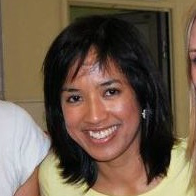"Fuiste pero quedaste. En la memoria, en el corazón, en la historia." (You left but you stayed. In the memories, in the heart, in the story.)
 These were the words that I carried with me on my journey back to Malaysia. Words given to me in the form of a poem by one of the young leaders, human rights defenders of the Peace Community, sincere words from a close friend.
These were the words that I carried with me on my journey back to Malaysia. Words given to me in the form of a poem by one of the young leaders, human rights defenders of the Peace Community, sincere words from a close friend.
The same week that I left, it was shocking to hear the news: a bit away from Colombia, in western Honduras, a woman named Berta Cáceres was found murdered in her sleep in the early morning of March 3. Unknown assailants had apparently broken down the front door of her house and shot her dead.
Berta Cáceres is an indigenous Honduras human rights defender and a high profile activist that works in defending land rights in Honduras. Her death was specifically linked to her opposition to one of Central America's biggest hydropower projects, the Agua Zarca cascade of four giant dams in the Gualcarque river basin.
The Gualcarque river, is not just territory for the indigenous Lenca, but is considered as sacred and a source of subsistence for the community.
The death of Berta Cáceres is not an isolated case, but rather, represented an escalating trend in South and Central America, of increasing violence, murder and intimidation against people defending their land or their human rights.
The same week, Colombian news continued to be peppered with deaths, many of them strangers I have never met, yet they represented the same struggle that I witnessed for a whole year.
These deaths represented the fight to stay on their land, at much cost, fighting the interests of armed actors, of multi-national corporations, of interests to exploit natural resources. Many of the deaths were of leaders of farmers or indigenous resistance organisations.
These acts of violence not occur just amid climates of conflict. In Guatemala, for instance, despite the signing of the peace agreement in 1996, rising concerns over organised crime and drug trafficking have also caused an overall increase in intimidation against human rights defenders.
In Colombia, with the peace accord due to be signed this year, these are one of the issues that need to be tackled if peace were truly to arrive.
Having lived on the ground in Colombia, it saddens me to admit that these deaths are not unfamiliar stories. In fact, the work I did in Colombia is entirely based on the premise of protecting against such risks and threats through international presence and dissuasion.
Simply by choosing to work as a human rights defender, your risk of being murdered multiplies. In the first half of 2015, for instance, 34 advocates and defenders of human rights in Colombia were murdered.
These deaths are usually committed by unknown assailants from organised crime, and it is a common method to pay criminal gangs to assassinate those who are affecting your interests.
As one person explained it to me, in Latin America, killings are never the top or high-paying part of the underworld, as we would often imagine them to be. Killings, sometimes, are the low-cost/low-risk, and sometimes the most economical part of business and development.
These are the risks faced for those who choose to fight. – March 8, 2016.
* This is the personal opinion of the writer, organisation or publication and does not necessarily represent the views of The Malaysian Insider.


Comments
Please refrain from nicknames or comments of a racist, sexist, personal, vulgar or derogatory nature, or you may risk being blocked from commenting in our website. We encourage commenters to use their real names as their username. As comments are moderated, they may not appear immediately or even on the same day you posted them. We also reserve the right to delete off-topic comments